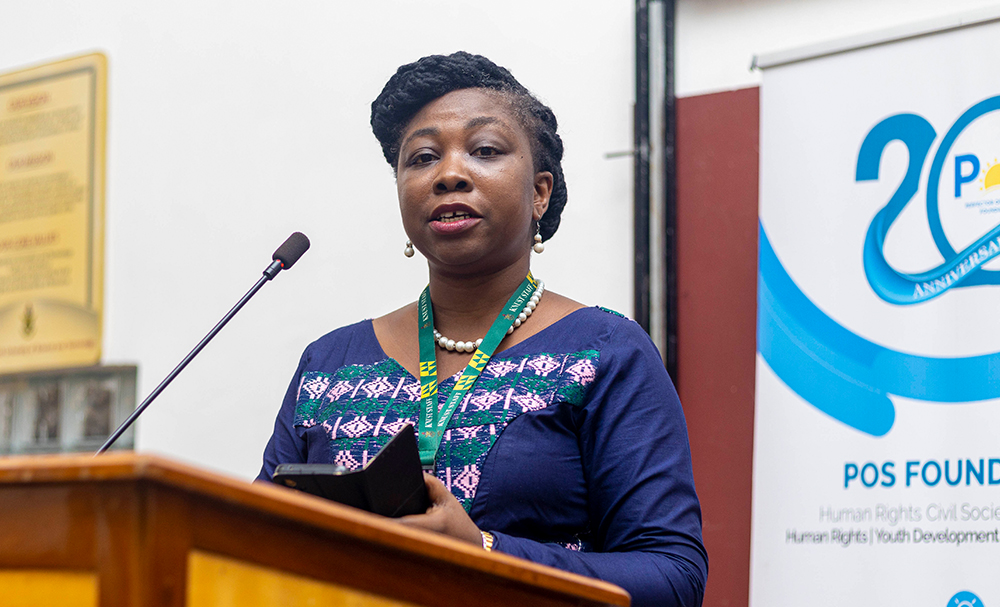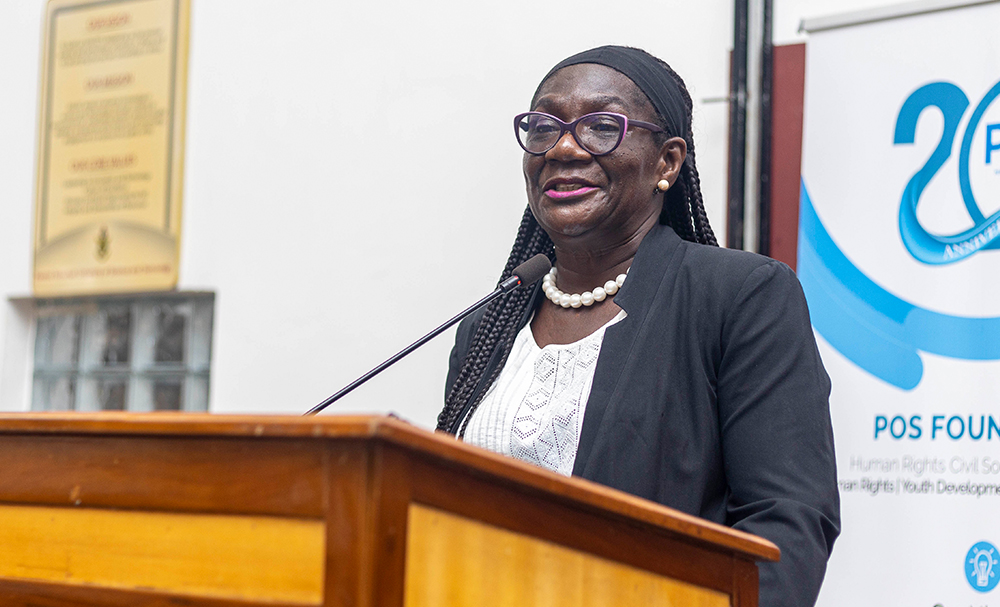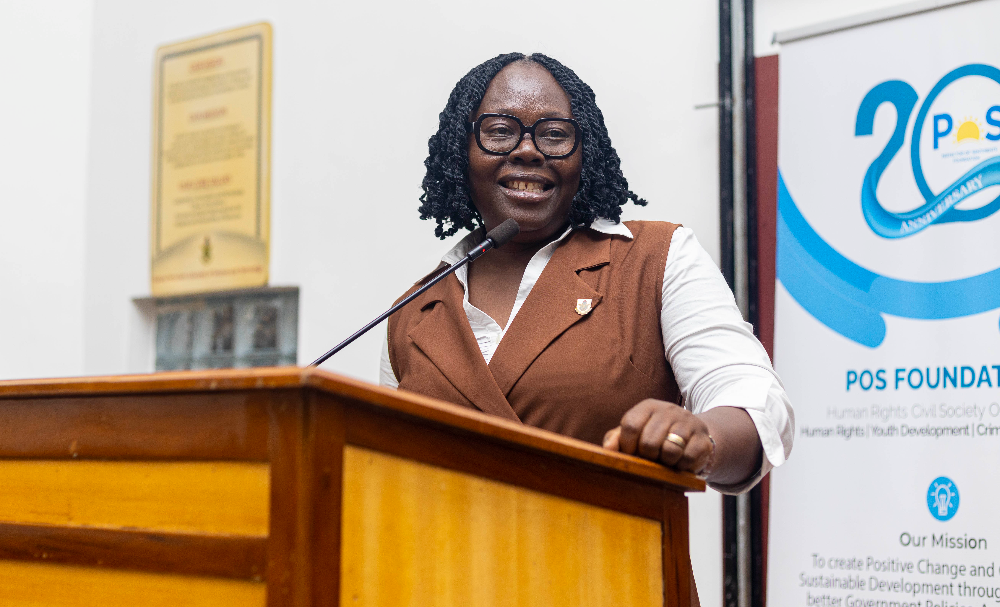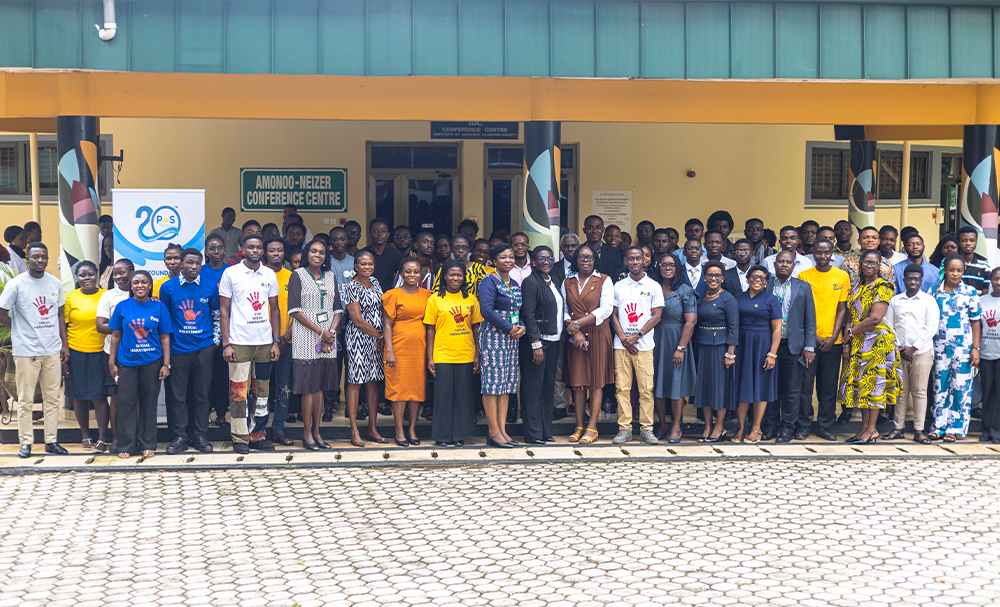The Directorate of Student Affairs (DoSA) at the Kwame Nkrumah University of Science and Technology (KNUST), Kumasi in collaboration with the Student Representative Council (SRC) and the Perfector of Sentiment (POS) Foundation, has held a workshop aimed at strengthening efforts to combat gender-based violence and sexual harassment on campus.
The event, which brought together faculty, students, healthcare professionals, university security officers and other stakeholders, focused on building awareness, enhancing institutional response, and promoting coordinated strategies to create a safer and more inclusive campus environment.

Professor Marian Asantewah Nkansah, Director of Student Affairs, described the initiative as a vital step towards fostering respect and accountability within the university community.
“This workshop is vital for raising awareness, promoting empathy, and equipping us with the knowledge and skills to address these issues,” she said. “Together, we can create a community that values dignity, respect, and consent.”
Prof. Nkansah encouraged participants to trust the university’s reporting mechanisms, assuring that all personal information shared through official channels would be handled with the highest confidentiality.

Dr. (Mrs.) Frances Dufie Azumah, a senior lecturer in the Department of Sociology and Social Work, emphasized the importance of strong policy frameworks, noting that KNUST’s Sexual Harassment and Gender Policy aligns with both national and international standards.
“The policy is for all stakeholders because harassment takes many forms,” she said. “Do not use your position to harass anyone. Send the information to us, and we will take action. We want a safe space for all.”

Mrs. Victoria De-Graft Adjei, Deputy Registrar and Head of the KNUST Counselling Centre, outlined several institutional tools and policies designed to prevent and respond to incidents of sexual misconduct. These include the Sexual Harassment Policy, Gender Policy, Counselling Policy, the student code of conduct, and the KNUST e-Counselling App.
“Confidentiality is assured. DoSA is a safe space, it starts with opening up,” she said, urging families, faith-based organisations and schools to support early education on empathy and respectful behaviour.
“We need to raise children, especially boys, with empathy and confidence, so they understand the importance of protecting others and themselves,” she added. “And girls must understand that they have the self-esteem to protect themselves.”
Jonathan Osei Owusu, Founder and Executive Director of the POS Foundation, commended KNUST for demonstrating institutional commitment to gender equity.
“The real meaning of gender equality has been practically manifested by KNUST. I see a lot of great women managing student affairs, and it’s encouraging,” he said.
He noted that a major challenge remains the lack of awareness around what constitutes sexual harassment. “Some students do not recognise what qualifies as harassment, while others underestimate its seriousness. We are here to educate and empower them.”
He also praised the university’s adoption of the e-Counselling app, which enables anonymous reporting and increases access to support services.
The workshop was supported by the POS Foundation with funding from Amplify Change and is part of a broader initiative being implemented across five public universities in Ghana.

















